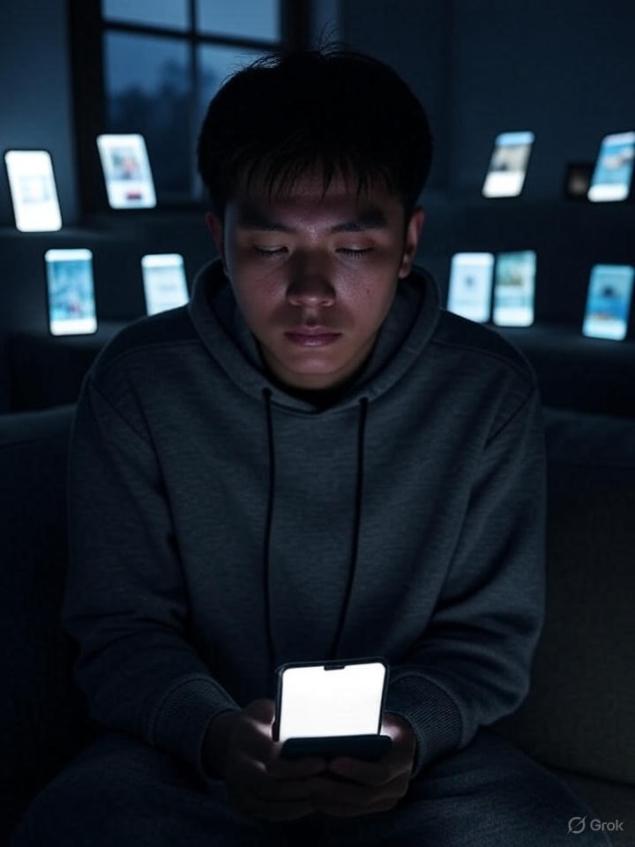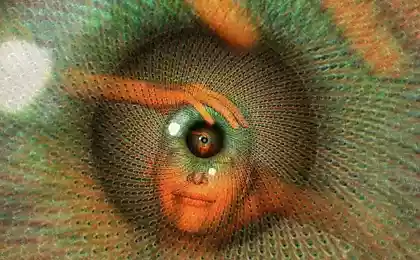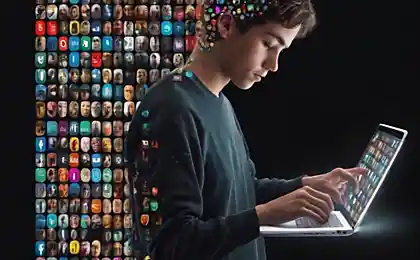92
What happens if you give up social media for a month?

Imagine a world where your mind is not clogged by an endless stream of other people's breakfasts, pseudo-wise quotes and toilet selfies. Does that sound like science fiction? No way! This is a reality that you can create today.
The average person spends 2.5 hours a day on social networks. That’s 912 hours a year – almost a month of continuous scrolling! Time that could be spent developing one’s own personality, rather than watching the lives of others.
The Dark Side of the Digital World
Social media has become a trap for human consciousness. They create the illusion of connection when they actually isolate us from genuine communication. Each like triggers the release of dopamine in the brain - the very neurotransmitter that is responsible for the feeling of pleasure. Gradually, dependence is formed, similar to drug addiction.
Attention! If you automatically reach for the phone in the elevator, feel anxious without access to the Internet, or sacrifice sleep for the news feed, you have already formed a digital addiction.
Social media algorithms are designed to keep your attention as long as possible. They study your preferences, create personalized feeds, and pitch content that elicits strong emotions, often negative ones. They are the ones that make us stay online longer.

Symptoms of digital dependence
- Phantom Vibrations – The phone seems to vibrate, but it doesn’t.
- Nomophobia: Fear of being without a mobile phone
- The constant need to photograph moments for social networks
- Dependence of mood on the number of likes and comments
- Sleep disturbance due to night surfing
- Decreased concentration and productivity
Magical transformation: what happens when you abandon social networks
1 Return of time
Getting rid of social media will give you an extra 75 hours a month! This time can be spent learning a foreign language, reading books, playing sports or developing creative skills. Imagine: in a month you can read 3-4 books, learn the basics of a new hobby or significantly improve your physical fitness.
Lifehack: Install an app to track screen time. When you see the real numbers, the shock will be so strong that the motivation for change will appear.
2 Life in the “here and now” mode
Without having to document every moment on social media, you will begin to truly enjoy life. The taste of coffee will be brighter, the sunset will be more beautiful, and the laughter of friends will be sincere. This is called mindfulness or mindfulness – the ability to be fully present in the present moment.
Studies show that people who practice mindfulness have higher levels of life satisfaction and cope better with stress. Giving up social media is the first step to this.
3 Healing Self-Esteem
When you stop constantly comparing yourself to carefully filtered versions of other people, self-esteem begins to recover. You stop measuring your value by the number of likes and begin to appreciate your achievements by their real value.

4 Getting rid of FOMO
Fear of Missing Out (FOMO) – the fear of missing out on something important – is one of the main factors keeping us on social media. Digital detox helps you realize that most “important” newsfeed events don’t actually affect your life. You find inner peace and stop chasing the illusion of belonging.
5 Quality of communication
Without the constant distraction of notifications, you’ll start listening to people better, having deeper conversations, and building real rather than virtual relationships. Friends will notice that you have become more attentive and emotionally accessible.
A Practical Digital Detox Plan
Preparatory phase:
- Notify your loved ones about your experiment and leave alternative ways of communicating.
- Remove social media apps from your phone
- Install site blockers on your computer
- Find substitute activities: books, sports, hobbies
The first week is the hardest:
- Expect withdrawal syndrome: anxiety, boredom, desire to check notifications
- Replace the habit: instead of scrolling, do breathing exercises
- Keeping a journal of sensations will help track progress
The second or third week is adaptation.
- Concentration improves, there is more energy
- Time seems slower and more intense.
- New ideas and creative impulses emerge
The fourth week is a new reality.
- The social media habit is weakening
- There is clarity of thoughts and goals
- New, healthier habits are being formed.
Possible challenges and how to overcome them
Social pressure: Some people may not understand your decision. Explain that this is a temporary experiment to improve their quality of life, not a criticism of their lifestyle.
Working moments: If social networks are needed for work, limit their use to strictly working hours and tasks. Use special applications for post planning.
Boredom: The first days without the usual entertainment can seem boring. It's okay! Boredom is a brain signal that it’s time to do something more meaningful.
Long-term prospects
The monthly experiment is just the beginning. Many people who have tried digital detox are radically rethinking their attitude to technology. They are starting to use social media as a tool, not as a way to kill time or get a dopamine dose.
Remember, the goal is not to give up all technology forever, but to gain control of your attention and time. You should control technology, not you.
After a month, you will be able to use social media more consciously. You might just leave one or two platforms, check them once a day at a certain time, or you might decide that without them, life is much better.
The secret to success: Don't take it as a deprivation or punishment. It is an investment in your mental health, productivity and quality of life. You don’t lose something important, you find yourself.
Digital detox is not a fashion, but a necessity in an age of information abundance. Your brain deserves a break from the constant information noise. Give him the opportunity to recover, and he will thank you with clarity of thought, creativity and inner peace.
Remember, every day spent without thoughtless scrolling brings you closer to a more conscious and happier life. Start today and the future self will thank you.
Glossary of terms
Digital detox
Deliberately avoiding the use of digital devices and platforms for a certain period of time in order to reduce stress and improve the quality of life.
dopamine
A neurotransmitter responsible for feelings of pleasure and motivation. Plays a key role in the formation of dependence on social networks.
FOMO (Fear of Missing Out)
Fear of missing out on something important; anxiety arising from the thought that other people are having more interesting experiences.
Nomophobia
Irrational fear of being left without a mobile phone or losing connection to the network.
Mindfulness
Practice conscious presence in the present moment without judgment.
Information noise
An excess of irrelevant information that interferes with concentration and decision-making.
Phantom vibrations
False sense of phone vibrating when there are actually no notifications
Withdrawal syndrome
A complex of unpleasant symptoms that occur when you abandon a habitual stimulus or substance.























